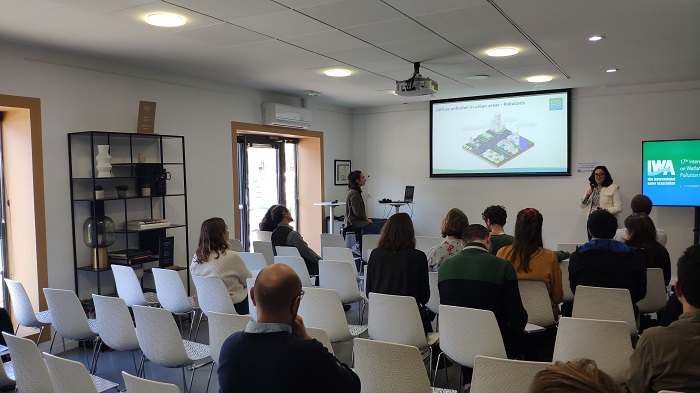The WATERUN project kicked off on June 2022 and in the first semester, the consortium initiated the first tasks. The main activities carried out in this initial period were focused on information gathering, development of monitoring protocol and dissemination activities.
The consortium has been working on the establishment of the data and material flow between the different partners involved to facilitate communication and avoid redundancy and loss of information.
The information initially required is focused on the case studies, including general data about the characteristics of each catchment and all the evidence to be collected during the operation of the blue-green infrastructures.
The monitoring guidelines to facilitate the correct data gathering and registering for the development of the tasks in WATERUN project have been completed. The definition of the general catchment and water quality data includes the information which will be managed during the project, focusing on the catchment level and on the blue-green Infrastructures used as mitigation measures for the diffuse pollution.
In parallel, the project has started the diseminassion activities with a presentation of the project in conferences (for example the 17th International Conference on Wetland Systems for Water Pollution Control) , social network (Twitter: @ EU_Waterun, LinekdIn: @eu-project-waterun), creation and publishing a website (https://www.waterun.eu/) for project communication.

Figure 1: WATERUN project presentation in the 17th International
Conference on Wetland Systems for Water Pollution Control by
AIMEN. Lyon (France) Nov 2022.
© Santiago Gòmez Cuervo - AIMEN
In 2023, the WATERUN project begins an important period for the development of the core activities scheduled. Thus, the project will keep on moving forward with activities related to the implementation and monitoring of case studies (Aarhus and Santiago de Compostela), modelling tools and first steps of co-creation activities with local stakeholders. It is envisaged to complete the works on the construction and start-up of the sustainable drainage systems and the bioremedation constructed wetlands in Santiago de Compostela Case Study. Likewise, the adaptation, preparation and initial monitoring campaings of the different green infractures in Aarhus and Amman (Jordan) will start soon.
Regarding modelling tools and risk and environmental and techno-economic assessments, the data already provided as well as the data collected in the next months will be analysised and processed for the development of the different modells and to start working on the risk, environmental and technoeconomical assessment. Furthermore, activities related with the stakeholders engagement will be launched in the next weeks due to the importance to keep the end users and community involved in the co-creation creating a community aware of the importance of urban water runoff management in cities and collaborating in the solutions.
Authors: AIMEN Technology Centre
Date: 31.01.2023